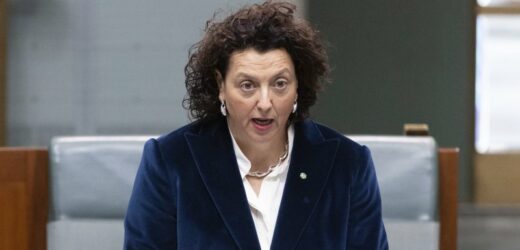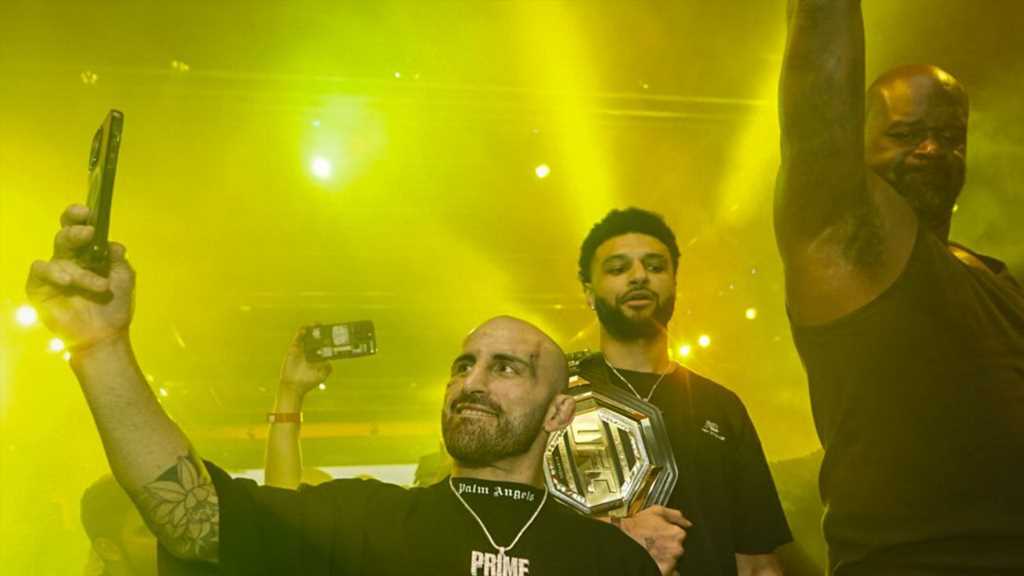Save articles for later
Add articles to your saved list and come back to them any time.
The running of the $20 billion Medical Research Future Fund is a standing joke among scientists, says independent MP and former medical researcher Monique Ryan.
“Everyone is incredibly cynical about this scheme, and people have been for a long time,” Ryan said on Saturday in response to an investigation of the MRFF by this masthead.
Independent MP Monique Ryan says the medical research industry is cynical about the Medical Research Future Fund.Credit: Alex Ellinghausen
The investigation has raised questions about how the giant fund spends taxpayer money. It is supposed to back cutting-edge research, but experts claim its “unusual” structure allows the federal health minister to hold too much sway.
Ryan, a professor of medicine and former director of the Neurology Department at the Royal Children’s Hospital – and an unsuccessful MRFF grant applicant – on Saturday led calls for limits on how politicians spend public money earmarked for scientific research.
“When you give money to a regional centre that’s not very good, or a researcher who is not competitive on the world stage, you’re wasting taxpayer money, Ryan said.
Ryan’s calls for an overhaul were backed by leading scientific organisations and a member of the Senate crossbench.
But the federal health department said the Australian National Audit Office (ANAO) independently analysed the MRFF in late 2021.
“The ANAO found that Health’s governance arrangements for the management of the MRFF are largely effective, and that Health has suitable arrangements in place to provide assurance that grant applications are assessed on their merit and represent value for money,” the department said.
Through his spokesman, former Coalition government health minister Greg Hunt defended his administration of the medical research fund, and said 91 per cent of project grants were peer-reviewed and awarded after a competitive process. All departmental funding recommendations were followed, he said.
Federal Health Minister Mark Butler said on Saturday medical research should be “above politics”.
Greg Hunt in May 2022 in his then role as federal health minister.Credit: Nine News
“The reports in the Nine Newspapers are concerning,” he said.
“Last month, I announced a consultation on the future of medical research funding in Australia, including the governance and administration of the Medical Research Future Fund. That consultation process closed this week.”
Among the options canvassed under the review are moving the fund’s management from the health department and under the independent National Health and Medical Research Council.
That potential move was backed by the Australian Association of Medical Research Institutes (AAMRI), the Australian Academy of Science, and the Australian Academy of Health and Medical Sciences on Saturday.
“It’s a hands-off approach, based on expert peer review,” AAMRI chief executive Dr Saraid Billiards said.
Billiards said a committee of politicians and health experts could set priorities for the fund, and any funding allocated would be at arm’s length.
In its submission to the review of the fund, the academy of science said a revised model would “ensure transparency for grant decisions under both funds”.
“The NHMRC [National Health and Medical Research Council] governance model will address gaps in independence, transparency, risk management and accountability in the MRFF as currently structured,” the academy of science submissions says.
Australian Society for Medical Research president Emily Colvin said it was imperative funding for future MRFF projects was made based on the health and medical research needs, and “not targeted towards the needs of a particular electorate or granted at the behest of lobbyists”.
“[The society] strongly believes that the success of the fund requires transparent governance free from political interference,” she said.
Health Minister Mark Butler.Credit: Alex Ellinghausen
Professor Eric Morand, the dean of clinical and molecular medicine at Monash University, said the medical research sector had a strong belief it was “being cooked at the back end – some with evidence, some with suspicion”.
“It just never looked right. Grants would come out that were written for one person to apply for. And money was being pissed away,” Morand said.
Independent senator David Pocock said the MRFF must be operated with integrity.
“The MRFF is more than twice the size of the proposed Housing Australia Future Fund,” he said.
“Communities across the country … are desperate for more investment in health and research infrastructure, so let’s make sure funds are being spent based on theirs needs, not the electoral wants of the major parties.”
The health department said most MRFF funding was now offered on a competitive basis.
Monash University’s Eric Morand says the allocation of funding grants “never looked right”.Credit: Luis Ascui
“Since 2020, with the exception of some urgent COVID-19 priority investments, the MRFF has exclusively utilised competitive processes,” a department spokesman said.
“To date, it has funded 1100 grants worth $2.7 billion, of which 92 per cent –1010 grants – have been awarded through competitive processes.”
But Ryan said that was a mirage.
“Calls for funding would be put out, and my PhD students would say, ‘Should I put in application in?’ And you’d say, ‘No, that’s clearly for Michael or Pauline’,” she said.
“You could tell from the calls for grants exactly who they were meant for. It’s a great shame.”
Much MRFF funding goes through huge “research missions” that target diseases such as brain cancer or dementia.
Morand said targeted funding wasn’t useful given Australia was a small scientific player globally.
“The idea Australia will solve one disease because we throw a huge amount of money at it, the world just does not work that way,” he said.
Instead, he said, the MRFF should prioritise the best research so that Australian researchers can have an impact globally.
“Government ministers shouldn’t pick what research is done, other than in cases of clear national need. There’s no point the minister saying, ‘We’re all going to study Parkinson’s’. The world is going to solve these problems together.”
The federal opposition has been contacted for comment.
Cut through the noise of federal politics with news, views and expert analysis. Subscribers can sign up to our weekly Inside Politics newsletter here.
Most Viewed in National
From our partners
Source: Read Full Article






